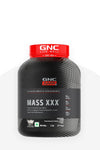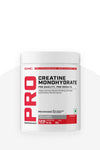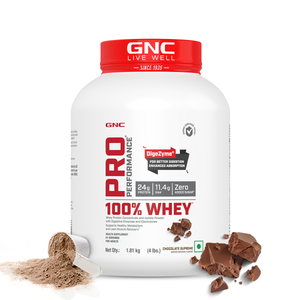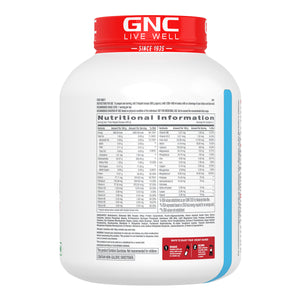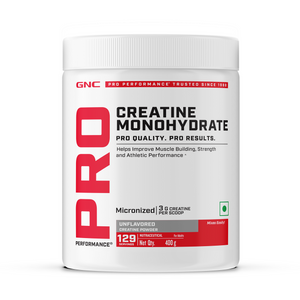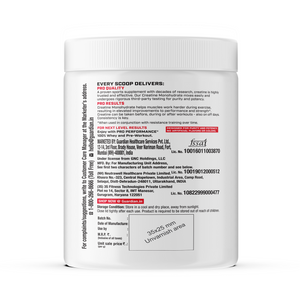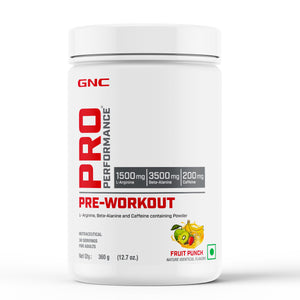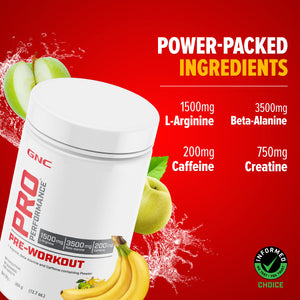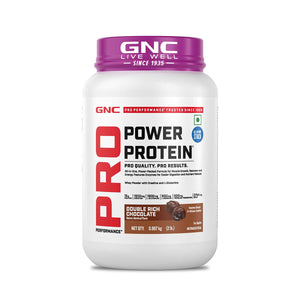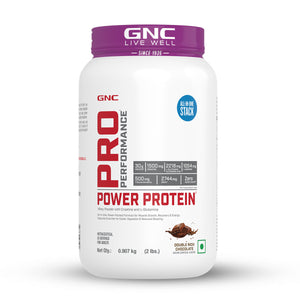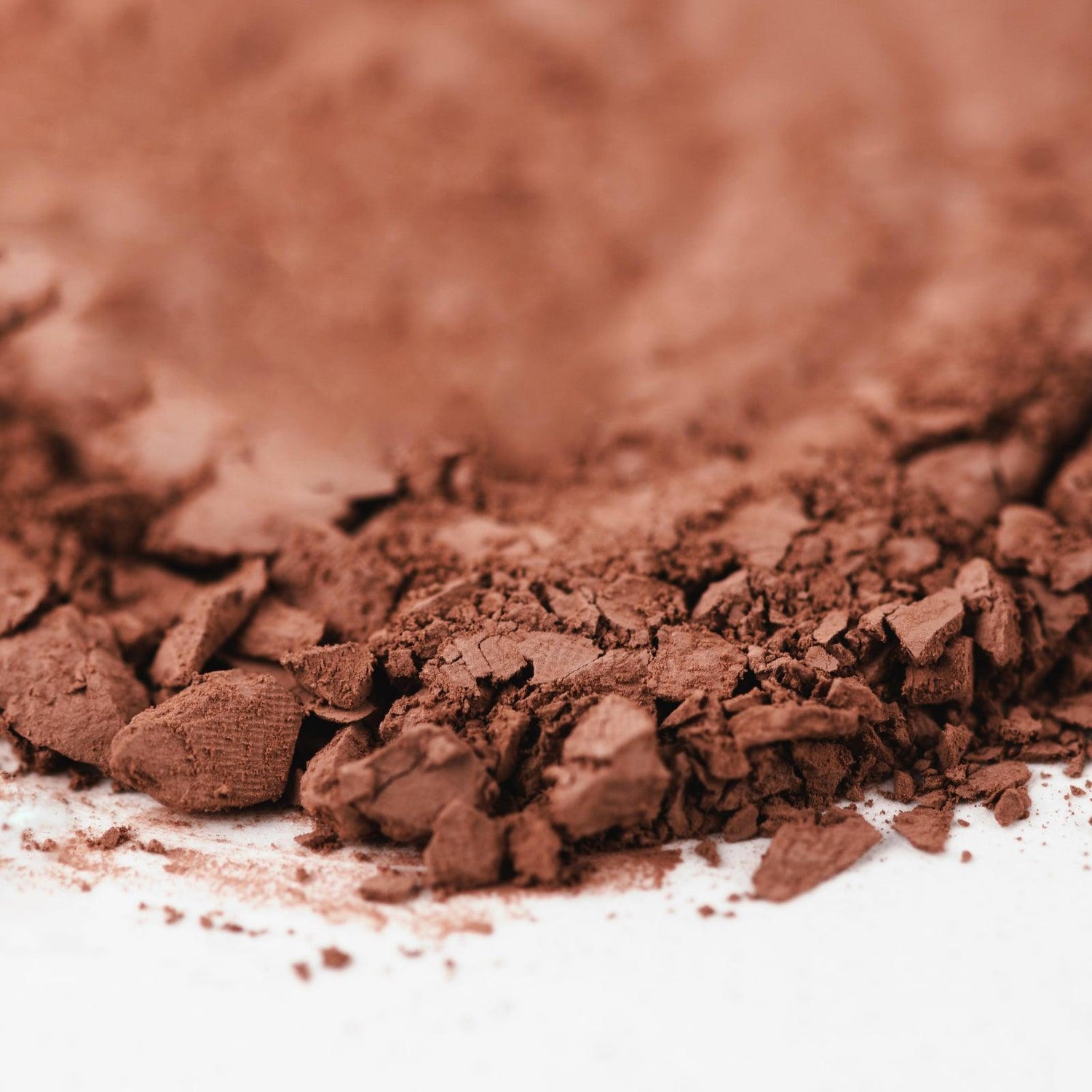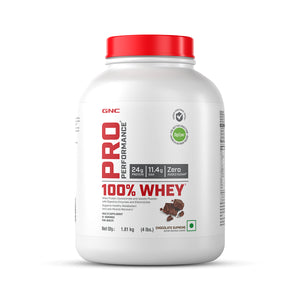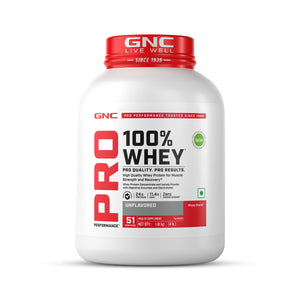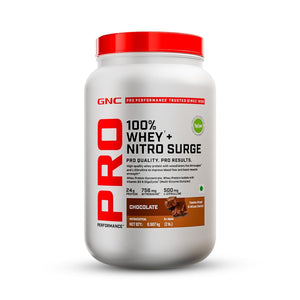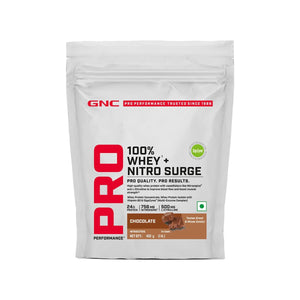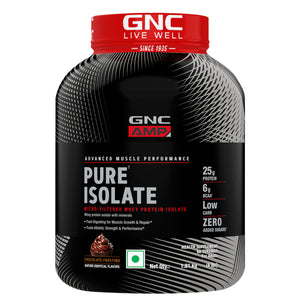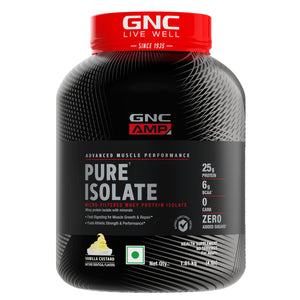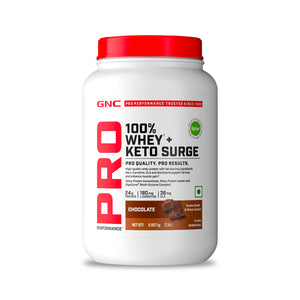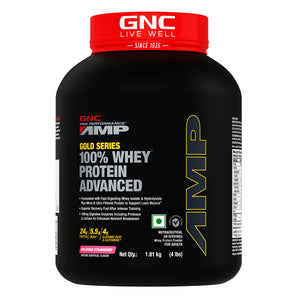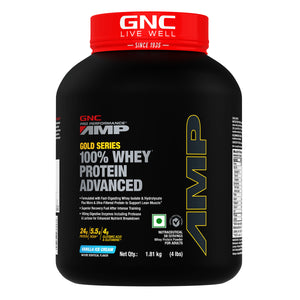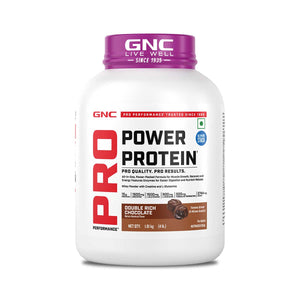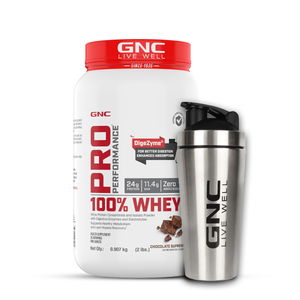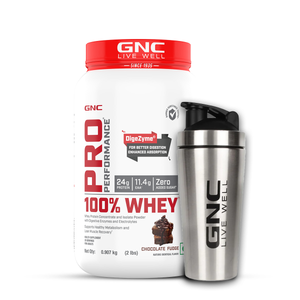
Whey Protein has always been a go-to supplement for athletes, fitness enthusiasts, and bodybuilders for lean muscle mass and fat loss. In this article, we will cover what and how of whey protein, learning more about the basics of whey protein to make our knowledge about whey protein strong and clear.
What is Whey Protein?
Whey Protein is a byproduct of cheese production. The liquid form of whey then goes through the various drying processes to form a powdered supplement form. This end product is known as whey powder and is one of the excellent sources of protein. It has a complete amino acid profile with great digestibility and bioavailability. It is also commonly used powder in meal replacers or bars and hence can also aid in weight loss.
What are the types of Whey Protein?
There are three types of whey protein:
Whey Concentrate: Whey protein concentrate contains approx. 80% of protein and contains traces of fat, lactose, or other compounds. Whey concentrates are more economical per gram of protein. It is one of the easily available whey proteins.
Whey Isolate: As compared to whey concentrates, whey isolates contain almost 90% of protein and are fairly low in fat, sugar, and lactose. Hence, whey isolate packs more protein than concentrate. It is usually expected to include in the fitness athlete’s diet.
Whey Hydrolysate: Whey Hydrolysate is isolates or concentrates which are being broken into amino acids for faster absorption and improve bioavailability. Thus, it is higher in price per gram as compared to the whey isolate and concentrates.
What are the benefits of Whey Protein?
Whey protein is required to meet our everyday needs. Everyone including fitness enthusiasts requires to include protein supplements if the natural sources of protein are not enough to meet their recommended intake. Hence, whey protein should be consumed by each and every one of all age groups.
Not all proteins are created equally! Whey is considered to be one of the superior forms of proteins. Here we are sharing the top 6 reasons to include whey protein in your diet immediately.
Increases Muscle Mass
Whey protein contains all essential amino acids including the branched-chain amino acids especially leucine. Leucine helps fuel muscle cells and supports muscle protein uptake and balance. Whey Protein has been shown to have the best results when it comes to building muscle mass when you combine it with strength training.
Improves Metabolism and May Promote Weight Loss
Whey protein can also help increase fat loss while preserving lean muscle mass. This was also confirmed by one of the studies, published in the esteemed journal. It was observed that those who consumed whey protein lost significant weight as compared to those who did not. Users consuming Whey protein also showed greater maintenance of lean muscle mass. Protein helps to burn more calories and prevents the slowing of metabolism that occurs when you lose weight.
Helps Lower Blood Pressure Levels
Hypertension is one of the leading causes of heart disease. Whey Protein contains ACE-inhibitors called lactokinins, which had been studied to have a positive effect on lowering blood pressure levels. This effect was seen only in those individuals who have high blood pressure. Thus, reducing the risk of heart stroke or disease.
A Great Source of Antioxidant
Glutathione is one of the most important antioxidants required by your body. The production of glutathione depends on the supply of three amino acids: cysteine, glutamate, and glycine. Whey protein is rich in all essential and non-essential amino acids and hence can help boost the production of glutathione in your body. It is being studied that it secures free radical damage and oxidative stress.
Helps Improve Immunity
Whey protein is an important constituent that builds immunity; gives your body the strength to fight infection. Whey Protein is responsible for the production of glutathione, a foundation of a cell’s defense system. Whey proteins are soluble dairy proteins made up of several components such as alpha-lactalbumin, beta-lactoglobulin, lactoferrin, immunoglobulins, and others. Each of which has an important function in enhancing the immune system.
Helps Lowering Cholesterol
One of the studies tells that overweight men and women who consumed whey protein supplements observed a significant decrease in total and LDL cholesterol compared to the group consuming casein.
Is Whey Really Necessary?
Everyone should have all 20 amino acids available to the body through the bloodstream all the time. If the body does not have adequate amounts, it will break down muscle and other tissues to get the amino acids it needs for vital, life-sustaining functions, which is known as a catabolic state. Protein is the best way to get all of the essential amino acids that the body needs.
As per the ICMR, the basic protein requirement for a sedentary adult would be 0.8 – 1g/kg body wt. and for gaining muscles one needs 1.2 – 1.7g/kg body wt and serious athletes into strength requires 1.7 – 1.8g/kg body wt.
A recent survey clears that 93% of Indians are unaware of their protein requirements and not able to meet their requirement through natural food sources. Yes, Food Sources are important, but adding supplements to your diet will only help bridge the gap between the requirement and the deficiency.
Whey protein constitutes almost 80% of the milk protein and it is one of the fast-absorbing proteins with the best bioavailability as compared to the other sources.
Why take GNC Whey Protein?
You can feel confident when taking home a GNC brand Protein product because…
- Our Products contain the full amount of protein stated on the label and is 100% Real Protein with NO protein spiking.
- Up to 150 quality checks are done before it reaches the market.
- GNC Proteins are WADA and Informed Choice Certified. Hence, our proteins are tested & certified, and banned substance-free.
- GNC has superior Protein formulas
Our Take
Don’t use whey protein, if you have a lactose or dairy allergy. Whey Protein is generally well-tolerated but in special cases, there may be chances of bloating, headache, or nausea. However, this can be alleviated by monitoring your total protein intake. Always consult your doctor before consuming any dietary supplement.



